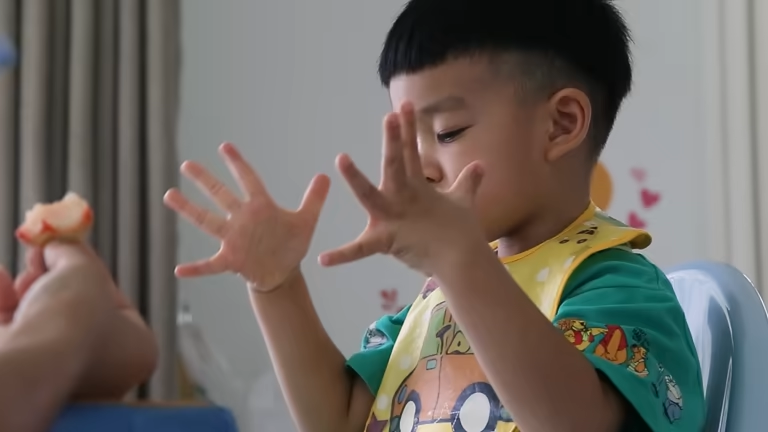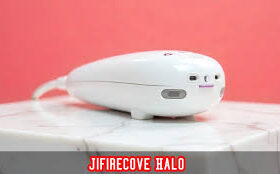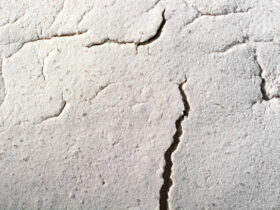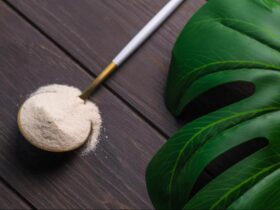In a world that moves faster every day, learning how to keep Dudokkidzo has become more than just maintenance—it’s a discipline of care, patience, and smart preservation. Whether Dudokkidzo is a crafted object, symbolic creation, digital piece, or cultural keepsake, knowing how to store, protect, and maintain it properly ensures its value never fades.
Today’s guide dives into every aspect of keeping Dudokkidzo in perfect shape—practical cleaning, safe storage, emotional connection, and eco-friendly care. Let’s explore how modern techniques make preservation easier and more meaningful than ever before.
🟦 What Exactly Is Dudokkidzo?
Before understanding how to keep Dudokkidzo, it’s important to know what it represents. Dudokkidzo is often seen as a blend of craftsmanship and identity—something that holds personal or cultural importance.
Depending on its context, Dudokkidzo can be:
-
A handcrafted object or artistic work.
-
A digital creation or collectible.
-
A symbol of heritage that connects generations.
Learning how to keep Dudokkidzo is about protecting not only its form but also its story and essence.
🟨 Why Learning How to Keep Dudokkidzo Matters in 2025
Preserving Dudokkidzo means preserving history, emotion, and creativity. In an age of disposability, long-term care stands out as a mindful act.
Here’s why it matters more than ever:
-
Protects value: Proper storage and cleaning maintain condition and worth.
-
Extends life: Prevents wear and environmental damage.
-
Honors tradition: Keeps cultural significance intact.
-
Reduces waste: Sustainable care supports eco-responsibility.
Learning how to keep Dudokkidzo helps you build a deeper, lasting relationship with what you treasure.
🟩 Step 1: Clean Your Dudokkidzo the Right Way
Cleanliness keeps Dudokkidzo fresh and vibrant. Whether it’s wood, metal, textile, or digital data—regular maintenance ensures long-term health.
✅ 1. Dust and Wipe Gently
Use a soft, lint-free cloth to remove particles. If it’s delicate, avoid chemical sprays; instead, mix mild soap with warm water for a gentle clean.
✅ 2. Use Natural Cleaning Agents
Eco-friendly cleaners—like diluted vinegar or lemon oil—preserve material texture and color.
✅ 3. Handle With Clean Hands
Natural skin oils can stain surfaces over time. Always clean your hands before touching Dudokkidzo.
✅ 4. Dry Completely
Air-dry under soft light or a fan. Moisture is the biggest enemy of long-term preservation.
🟦 Step 2: Store Dudokkidzo in Ideal Conditions
Storage plays a bigger role than most people realize when learning how to keep Dudokkidzo. The right environment shields it from sunlight, dust, and humidity.
✔ Choose the Perfect Spot
Avoid direct sunlight, damp basements, or overheated rooms. Ideal temperature: 18–24°C with stable humidity (40–50%).
✔ Use Breathable Covers
Wrap Dudokkidzo in cotton or muslin cloth to prevent moisture buildup. Avoid plastic—it traps humidity and encourages mold.
✔ Organize Carefully
If you own multiple Dudokkidzos, store them separately with labels to prevent scratches and confusion.
✔ Elevate From the Ground
Always keep valuable items slightly elevated to avoid accidental spills or pests.
🟨 Step 3: Maintain Dudokkidzo’s Function and Beauty
Proper maintenance keeps Dudokkidzo alive and usable for years.
🔧 Inspect Regularly
Every few weeks, check for cracks, fading, or deformities. Address small issues early.
💧 Recondition Periodically
Apply natural oils or conditioning waxes designed for the material. For digital Dudokkidzo, back up data and check file integrity.
⚙️ Avoid Overuse
Even strong objects have limits. Gentle handling ensures stability and longevity.
📔 Keep a Record
Document cleaning, restoration, and environmental changes in a small logbook. It adds both sentimental and historical value.
🟥 Step 4: Emotional and Cultural Care of Dudokkidzo
Physical care alone isn’t enough. Dudokkidzo carries emotional energy—keeping it requires respect and awareness.
🌿 Understand Its Meaning
Learn its story—where it came from, who made it, and why it matters. This emotional connection strengthens your commitment to preservation.
📸 Document Its Journey
Take photos, videos, or notes. These records become part of Dudokkidzo’s legacy.
👨👩👧 Share and Teach
If it’s a family heirloom or cultural piece, teach others the right way to handle and protect it. Passing on the knowledge ensures continuity.
🟩 Step 5: Avoid These Common Dudokkidzo Mistakes
Even with good intentions, a few wrong moves can shorten Dudokkidzo’s life.
| Mistake | Impact | Better Alternative |
|---|---|---|
| Direct sunlight exposure | Fades colors, weakens structure | Store in shaded areas |
| Harsh chemical cleaners | Damages surface texture | Use natural cleaners |
| Plastic wrapping | Traps moisture, causes mold | Use cotton or paper wrap |
| Frequent handling | Increases wear | Handle occasionally and gently |
| Ignoring temperature shifts | Causes cracking or decay | Keep stable indoor climate |
🟦 Advanced Preservation Tips for 2025
Technology has made it easier to master how to keep Dudokkidzo safely. Here are modern techniques experts recommend:
⚡ Smart Humidity Sensors
Install a small hygrometer in storage spaces to monitor moisture levels automatically.
🧊 Climate-Controlled Cabinets
For rare or valuable Dudokkidzos, climate control ensures consistent preservation.
☁️ Digital Backup
If Dudokkidzo has a digital form—like files, designs, or media—store encrypted copies on multiple drives or cloud services.
🧴 Restoration Experts
Seek professional conservators for antique or fragile items to avoid self-damage.
🟨 Eco-Friendly Ways to Keep Dudokkidzo
Modern preservation isn’t only about care—it’s about sustainability. Keeping Dudokkidzo responsibly means choosing green methods.
-
Use biodegradable cleaning solutions.
-
Avoid disposable wipes; use reusable cloths.
-
Recycle packaging and storage materials.
-
Store Dudokkidzo in natural-fiber containers.
-
Reduce electricity by using passive ventilation.
Preserving Dudokkidzo with environmental awareness ensures harmony between tradition and progress.
🟩 The Symbolic Meaning of Keeping Dudokkidzo
At a deeper level, Dudokkidzo symbolizes balance and gratitude. Caring for it reflects your respect for creation, history, and mindfulness.
When you protect Dudokkidzo, you’re also preserving your own discipline—learning patience, consistency, and appreciation.
That’s why learning how to keep Dudokkidzo is not just a task; it’s a philosophy of sustainable living and emotional awareness.
🟥 Troubleshooting Dudokkidzo Issues
| Problem | Cause | Fix |
|---|---|---|
| Discoloration | Sunlight or dirt exposure | Clean with mild natural polish |
| Odor buildup | Damp environment | Place charcoal or baking soda nearby |
| Structural weakness | Age or stress | Reinforce gently with professional help |
| Digital corruption | Unprotected storage | Use cloud and local backups |
| Mold growth | High humidity | Dry immediately and sanitize naturally |
🟨 Long-Term Dudokkidzo Preservation Plan
Want to ensure your Dudokkidzo survives the test of time? Follow this simple yearly plan:
-
Quarterly cleaning and inspection – quick polish and condition check.
-
Semi-annual storage review – ensure humidity and temperature stability.
-
Annual deep clean – professional restoration or reconditioning.
-
Digital archive update – if applicable, back up data yearly.
-
Legacy plan – teach the next caretaker how to keep Dudokkidzo properly.
This structured approach keeps both form and meaning alive indefinitely.
🟩 Conclusion: Keeping Dudokkidzo Is a Lifelong Practice
Learning how to keep Dudokkidzo is about combining care, knowledge, and respect. With the right cleaning, storage, and emotional mindfulness, Dudokkidzo can last generations—retaining not only its physical beauty but also its symbolic worth.
Whether you’re preserving a tangible artifact or a digital legacy, consistency and consciousness are key. In 2025 and beyond, the art of keeping Dudokkidzo represents more than protection—it represents appreciation for time, culture, and identity.
🟦 FAQs About How to Keep Dudokkidzo
Q1. What’s the best environment to keep Dudokkidzo?
A dry, cool, and shaded area between 18–24°C with 40–50% humidity is ideal.
Q2. How often should Dudokkidzo be cleaned?
Light cleaning weekly and deep cleaning every 1–2 months is perfect.
Q3. Can I use modern tech to preserve Dudokkidzo?
Yes! Smart humidity sensors, cloud backups, and climate cabinets help modernize preservation.
Q4. What’s the most common mistake people make?
Using plastic covers or harsh cleaners that trap moisture and cause permanent damage.
Q5. How can I pass Dudokkidzo to the next generation?
Document its story, teach handling methods, and ensure clear storage instructions for the future.








Leave a Reply